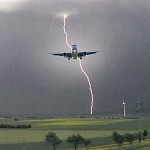Devarim 5771: Fear of God
“However you would not go up, but rebelled against the commandment of the Lord your God…” …Deuteronomy 1:26
In this week’s Torah reading, Moses is nearing the end of his life. The entire last book of the Torah, Deuteronomy (Devarim) is basically Moses final farewell speech to the people of Israel before he goes off to Mt. Nebo to die and the people continue their journey into Israel under Joshua.
So what does Moses do with this, the last and possibly most important speech of his life, a summing up everything that has happened and everything that he has learned? The first thing he does is remind the people of what terrible sinners they are, especially the sin with the episode of the spies, the cause for 40 years of wandering.
Here we are, at the end of long journey in the desert, ready to go into the Promised Land, and Moses starts out with all this negative stuff-he could have started out on a positive note, talking about how God brought the people out of Egypt, or fed them in the desert, or gave them Torah; but instead he starts talking about sins and how badly the people have screwed up.
It’s a little hard to understand. When you’re about to head home from an awesome vacation with your family, sitting around the table reminiscing, do you start with all the wonderful things you saw, what a tremendous experience it was? Or do you start by telling the others what idiots they were, losing the luggage, almost missing the plane, etc?
If you started with the negative stuff, your family would wonder, ‘what’s going on here?’ What’s the point of bringing up all the negative stuff?
The Slonimer Rebbe says the reason Moses started with a reminder of the negative stuff, with a reminder of how the people sinned, in order to induce yirat Hashem, awe/fear of God in the people.
But here’s a question: what’s more important: yirat Hashem, awe/fear of God, or ahavat Hashem, love of God?
Next week’s Torah reading, Vaetchanan, includes the Shema with its commandment to “love the Lord your God with all your heart, with all your soul, with all your might.” If we get love of God next week, we do we need the awe/fear of God this week?
It is taught that “reshit chochmah yirat Hashem,” the beginning of wisdom is fear of God.
It used to be a compliment to call someone a “God-fearing man.” Nowadays that would be thought quaint at best, and many would in fact turn away from such a thing: today everyone wants love, no one wants fear.
“Spirituality” today, if it’s about God at all, is about feeling “God’s love.” But what does it mean to feel God’s love if you don’t first feel in awe of God?
If you think you’re the greatest thing around, you won’t think you need God, you won’t seek God, you won’t even look for God…so how can you love God?
What is it that makes God worthy of love?
The word yirah is often translated “fear,” but that’s not really a good translation. It’s more awe, tinged with fear. The Zohar (one of the leading texts of Kabbalah) speaks of yirah as being so impressed with the power of God that you can’t avoid having a tinge of fear as well. It’s like the highest level of respect you can imagine. The best example that comes to my mind is one from an experience I had as a pilot. One time I was flying along under a thunderstorm in a four seat single engine airplane over western Kansas, late at night. I got caught in an updraft, and the plane started going up like a homesick angel. I reduced the power on the engine to idle, and pointed the nose of the airplane down toward the ground. That configuration should have had the airplane descending at a rate of 1500 to 2000 feet a minute. Yet when I looked at the vertical speed indicator, I blinked my eyes because I couldn’t believe what it said. We were still going UP at a rate of 2000 feet a minute. I felt myself absolutely in awe at the power of that updraft, and at the same time it was tinged with just a little edge of fear (well, maybe even more than just a little edge of fear as the bottom of the thunderstorm loomed near). For me that experience captures what I think is the essence of yirah, that blend of awe and fear.
Rabbi Abraham Joshua Heschel said no one comes to believe in God through thinking about it philosophically. Rather, we draw close to God through a feeling or awe or wonder at the universe…when we see a beautiful sunset and are able go “Wow! That’s amazing, good work God!” Many new parents feel the presence of God in the miracle of birth when they see a new person emerge from the womb, a joint venture between a mother, a father, a God.
May we all be blessed with the ability to experience “radical wonder,” with the ability to appreciate the amazing world that God has created, and that God has allowed us to be partners in shaping. And may the awe that we feel open and prepare our hearts so that we can feel God’s love in the world around us.



Wow! What a great, relevant explanation. Thanks!